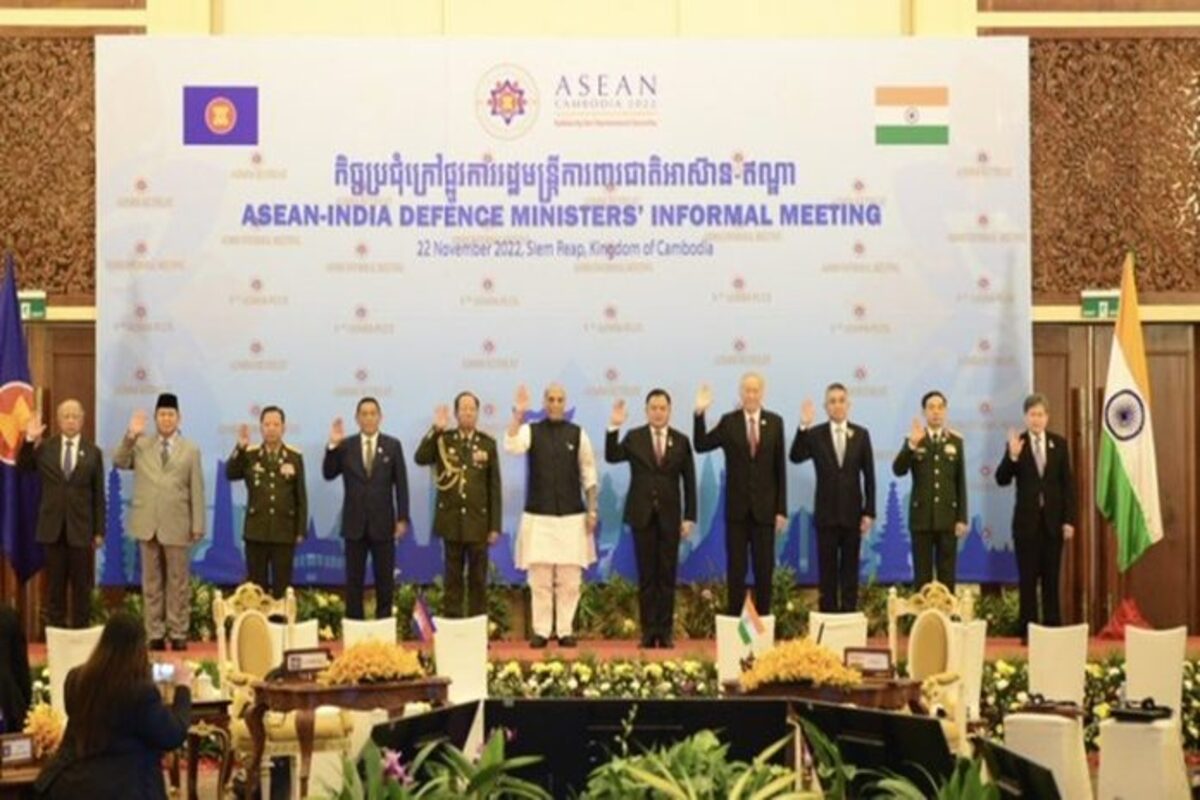The Asean-India foreign ministers’ meeting was held in Jakarta, Indonesia on 13 July 2023. India’s External Affairs Minister S. Jaishankar held talks with his counterparts in the Association of Southeast Asian Nations and its partners, including Singapore’s Vivian Balakrishnan, Brunei’s Dato Erywan Pehin Yusof, Indonesia’s Retno Marsudi, South Korea’s Park Jin, and New Zealand’s Nanaia Mahuta.
The discussions were productive and the leaders reviewed the progress in cooperation in areas like fin-tech, food security and maritime domains. Co-sharing a session with his Singapore counterpart, Dr. Jaishankar discussed the progress in the implementation of the comprehensive strategic partnership. He also exchanged views on the situation in Myanmar and the way to restore democracy since the military seized power in a coup in February 2021.
Advertisement
While in Jakarta, Dr. Jaishankar’s meetings with his counterparts were under the Asean framework and format ~ AseanIndia, East Asia Summit and Asean Regional Forum. He then travelled to Bangkok to participate in the 12th Foreign Ministers’ Meeting of the Mekong-Ganga Cooperation (MGC) Mechanism. This was significant too because MGC is one of the oldest mechanisms of the lower Mekong region guided by India’s Act East Policy.
The MGC is an initiative by India, Cambodia, Lao PDR, Myanmar, Thailand and Vietnam to facilitate closer connections between the six member countries which share the Ganga River and Mekong River Basins. Dr. Jaishankar also attended the BIMSTEC Foreign Ministers’ Retreat on 17 July. BIMSTEC is an economic and technical initiative which brings together the countries of the Bay of Bengal for multifaceted cooperation.
The leaders discussed ways to further deepen the BIMSTEC agenda and strengthen the organisation. The most significant aspect of the foreign ministers’ meeting focused on the situation in the South China Sea. Some recent development by a certain country such as militarisation of the islands, land reclamation activities, intruding into the neighbouring and claimant nations’ fishing areas in their respective EEZs and many more such illegal activities have created unease in the region.
As a result, trust is eroded and tensions have increased, thereby undermining peace, security and stability in the region. It was therefore, the joint statement released after the conclusion of the meeting that reaffirmed the need to strengthen mutual trust and confidence and underlined the importance of strengthening mutual trust and confidence.
Countries in dispute must refrain from conducting activities not conducive to maintaining peace and stability in the region, without which the issue could get complicated leading to escalation of disputes. During the meeting, it was unanimously agreed that the countries concerned must work for the peaceful resolution of disputes in accordance with universally recognised principles of international law, including the UNCLOS of 1982. It was therefore agreed that militarisation of the islands must be halted and self-restraint in conducting activities ought to be exercised so that there is no further escalation.
The leaders agreed on the importance of the South China Sea Code of Conduct (COC) and agreed on the guidelines to accelerate negotiations so that mutual trust is built and enhance trust and confidence between parties. It was a welcome development that China’s top diplomat Wang Yi agreed during his talks with Indonesian Foreign Minister Retno Marsudi on the guidelines to accelerate the negotiation of the COC for the South China Sea.
The strategic importance of the South China Sea is huge as about one-third of the world’s shipping passes through this body of water every year carrying over $3 trillion in trade. It is a hotly contested region with overlapping claims. China claims much of the South China Sea, but Asean members Brunei, Malaysia, the Philippines and Vietnam are also claimant states.
Current Asean chair Indonesia is not a claimant state in the South China Sea, but it has clashed with China over fishing rights around its Natuna Islands near the disputed waters in the past few years. So far as India is concerned, it has taken a principled stand that the UNCLOS of 1982 must be respected by parties and maritime commerce must be conducted as per the guidelines prescribed in this important document.
India’s position has always remained consistent. It was thus that Dr Jaishankar again stressed the UNCLOS must be respected, thereby supporting Asean’s position in the process of determining entitlements based on this important document. This too is consistent with India’s broader vision for the Indo-Pacific by co-opting Asean in its Act East Policy. Dr. Jaishankar was not shy in conveying India’s firm position with his Chinese counterpart Wang Yi. Indeed, there is an urgent need to build trust between parties so that an open and inclusive regional architecture can be built for everyone’s interests.
Without realising this, shared prosperity in the Indo-Pacific shall remain a pipe dream. In this situation of strategic complexity, as two strategic partners with civilizational links, India and Vietnam are well positioned to contribute to the maintenance of peace and stability in the region by defending global rules of governance in the maritime domain. China’s advance and expansionist design with a spirit of assertiveness into the global common ought to be checked. While the adversarial country must be ready to face the challenge at time of extreme provocation and if China crosses the red line, diplomacy ought to get primacy of place as a conflict would be detrimental to everyone’s interest. Therefore global rules need to be respected and followed so that the atmosphere for conducting diplomacy is created.
India and Vietnam have discussed these issues on a continuous basis and this process should continue. Bilateral ties in all areas also shall get a fillip. Maritime cooperation between India and Vietnam ought to receive added attention so that both can be equipped adequately to deal with the common challenge confronting the region.
(The writer was a former Senior Fellow at the NMML, New Delhi)











